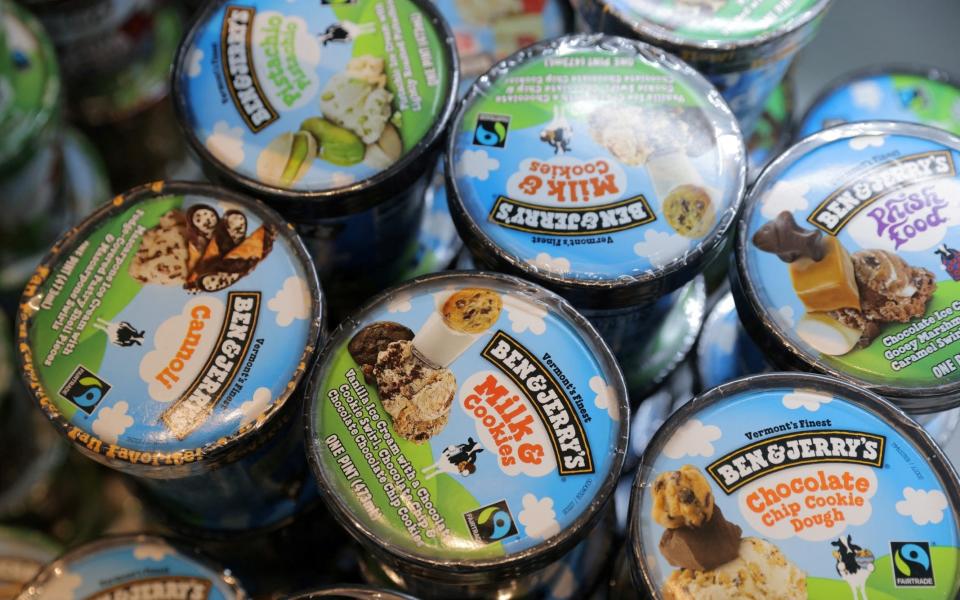Ice creams could be loaded with starch to stop them melting in net zero drive

Ice creams could be loaded with starch to stop them melting at higher temperatures as the push to net zero forces companies to turn up the temperature in their freezers.
Unilever, the owner of Magnum and Ben & Jerry’s, is attempting to engineer an ice cream that stays solid at a much higher temperature in a push to save energy and boost its green credentials.
If successful, the move will allow the business to cut the carbon footprint of its freezers in corner shops across the world by as much as 30pc. At present, its ice cream is stored at -18C but Unilever wants to keep it at -12C
Unilever has not disclosed how it intends to make the new ice cream, but experts believe the answer is likely to lie in using more starch.
David Jones, co-founder of food development experts Bingham & Jones, suggested the biggest challenge would be controlling the water molecules in ice cream so that they did not crystallise in warmer freezers.
"If you're going to change the temperature... it'll be locking in the water. The way to do that would be with some kind of modified starch or gums that would wrap themselves around the water and the fat and give it stability. It's all about stability."
Mr Jones said using a starch would not necessarily change the taste of the final product.
He said: "That's the beauty of starches – a lot of them are soluble and once it's combined it wouldn't be noticeable at all.
"I would imagine that Unilever, who are a very scientific and R&D-oriented business, would have the insight and skill set and resources to be able to test different starches and gums to create a formulation to allow this to happen."
Unilever's project, which was first reported by the Wall Street Journal, has involved roughly a decade of research and development. The company has been trialling warmer freezers in Germany.
Unilever will soon kick off a fresh round of tests in Indonesia.
Speaking to the Journal, Unilever's chief research and development officer Andrew Sztehlo said: "When my boss initially said, ‘Why don’t we just do this?’ I said, ‘You’re crazy, it’s just not possible.'"
If successful, Unilever wants to begin moving to warmer freezers in markets where its freezer emissions are the highest.
The company is considering sharing the technology with other brands whose products are stocked in its freezers.
The breakthrough could also boost revenue. Speaking to journalists earlier this month, Unilever's chief executive Alan Jope said ice cream sales had slipped last year as some shopkeepers switched off their freezers earlier in the year than usual.
Chris Noice, of the Association of Convenience Stores (ACS), said: "Energy costs are one of the biggest issues facing convenience stores at the moment. Any measures to safely reduce energy bills, such as freezers and refrigeration that use less power would certainly be welcomed by retailers."
Mr Jones added while the addition of a starch itself could potentially increase the cost of production, that might ultimately be negated by a saving on the cost of energy.
Unilever is one of the world’s biggest food companies. As well as ice creams, it owns major brands such as Dove, Marmite and Hellmann’s mayonnaise.
In recent years it has focused heavily on the social purpose and environmental credentials of its brands. However, it has attracted criticism from investors who have accused management of being distracted by purpose at the expense of profit.
Mr Jope – who is leaving the company later this year – defended Unilever’s record on social purpose, arguing it was a "false dichotomy" to suggest being ethical was incompatible with solid financial performance.
"We are not an NGO. Everything we do is to create value for our stakeholders," he said at a results presentation earlier this month.

 Yahoo Finance
Yahoo Finance 